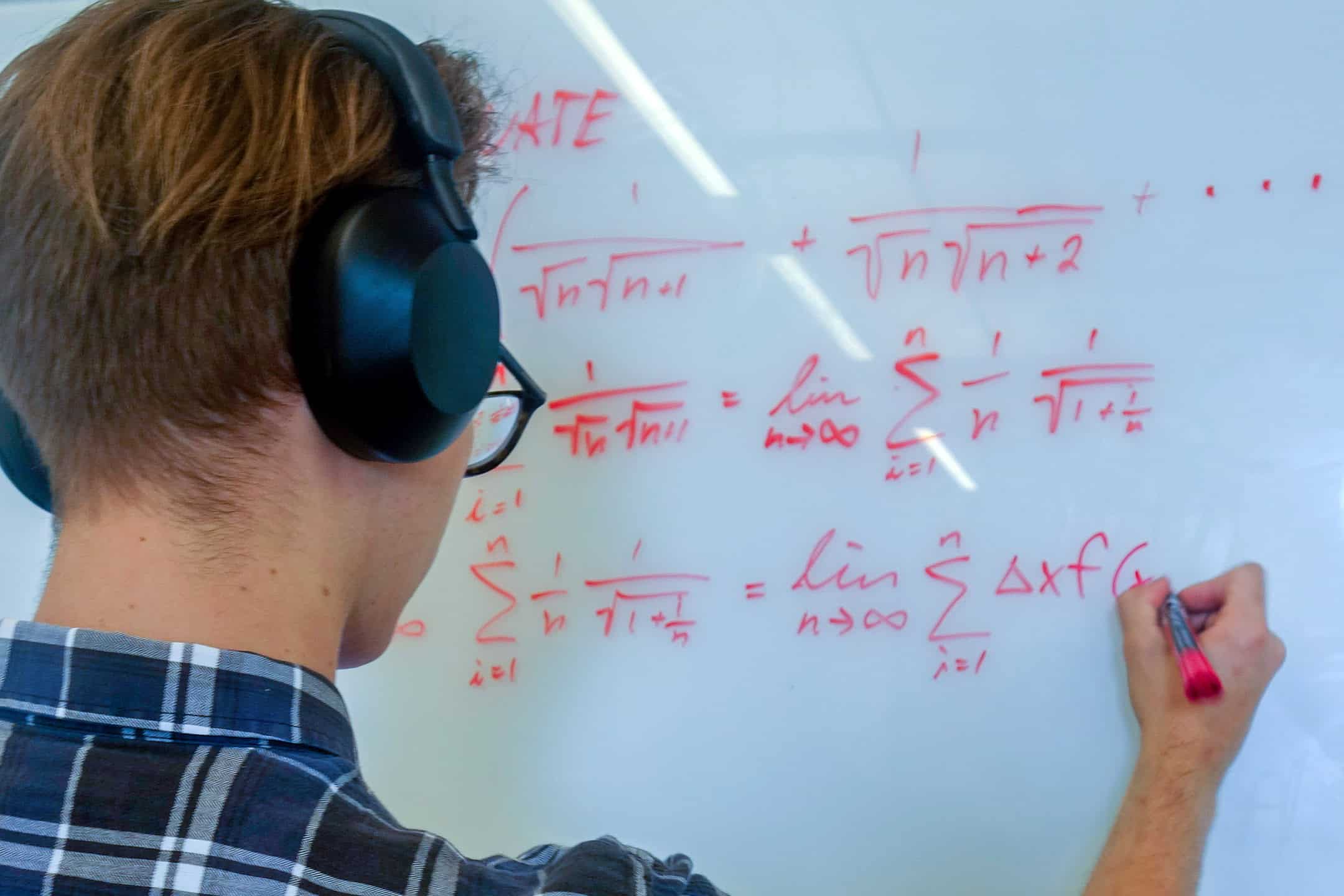As students, tuning out the chaos of the world to lock in for that upcoming midterm is a common reality. For some of us, music certainly helps poise our minds for attention, concentration, and ultimately better learning.
Researchers at the University of Pavia found that older adults’ ability to store, process, and utilize information — a psychological phenomena known as cognitive processing — while listening to upbeat and classical music resulted in better performances on a vocabulary test than those who worked in silence. Since all types of learning require cognitive processing, this could change how we study.
A 2022 study demonstrated that the average grade of students who utilized background music while learning was significantly higher than those of a control group who learned without music.
Math behind the music
In recent years, more studies have looked at the intriguing intersection of how certain types of music can enhance learning and performance in other academic subjects, such as math, by relaxing the brain and enhancing concentration. In 2023, researcher Ayça Akin from Antalya Belek University took a deep dive into exactly what the trends tell us about music and math. Akin reviewed 55 studies dating from 1975 to 2022 to decipher a possible trend between music learning and math performance.
Arithmetic skills such as numbers and ratios are essential for the disciplines of math and music within the elementary school curriculum. Basic concepts in math — such as fractions and ratios — are also conceptually present in music. Being able to draw conceptual connections between two different academic disciplines may help children learn one or the other better. Identifying patterns is an essential skill that young math and music learners encounter in the classroom. Just think about it: music involves identifying patterns and predicting notes.
In math, patterns are seen in solving equations and problem sets. Similarly, numbers and ratios are linked with musical concepts such as beat and rhythm. Performing music can reinforce parts of the brain activated when solving math problems. On top of this, musical learning involves training the working memory to hold information for future use. Math also utilizes working memory as we keep numbers in our heads and manipulate them in various ways to arrive at an answer.
Many people struggle with understanding math, so perhaps music can make studying easier.
The reason behind the rhyme
Akin combed through studies that indirectly integrated music through formal music lessons, instrumental lessons, and directly integrated music woven into math learning sessions. She found that more than half of the 77,595 students who listened to music while working on arithmetics performed better than those who did not listen to music. In a separate 2007 study, researchers from the Stanford University School of Medicine show that this could be due to the attention-activating effect of music. It could even be due to music serving as a helpful tool for stress management which frees up energy to focus on more important things, potentially enhancing productivity.
According to Akin’s review, both standardized music and classical musical interventions had a practically significant influence on math performance, but utilizing music-math integrated interventions — using musical activities to teach math instead of traditional approaches like textbook readings — had the largest impact on performance overall, with an astounding 73 per cent of students outperforming those who learned in contexts lacking music. In addition to a majority of younger students benefiting from musical interventions, students with neurotypical development improved mathematical skills significantly more than those with developmental disabilities.
How have Akin’s findings been translated into the real world? A 2021 study demonstrates that using music integrated math learning activities in an introductory statistics course led students in the course to achieve a higher GPA. Next time when your grades are slipping in applied courses, try listening to music!
Music and stress relief
Apart from the numerous benefits of mathematical skills associated with music, music can act as a powerful stress reliever. Music therapy is offered in many hospitals in addition to other treatments. This is fascinating as music is easily accessible, making it a great stress management tool for all students and disciplines.
If students are stressed about their math work and skills, listening to music will not only help them improve their performance but may also enhance performance by reducing stress and allowing them to focus on the problem set with more ease.
If you find yourself struggling with math, maybe try creating a playlist of songs from your preferred streaming service to solve equations or complete assignments with. Although some studies use classical music, why not try pop music or soft rock instead?
U of T also has plenty of amazing resources to check out, including UTSC Math and Stats Support. They have tutorials, exam support office hours, and review sessions. The Department of Mathematics at UTSG also provides drop-in sessions for many first-and second-year math courses. UTM also has a compilation of math tip sheets online and the Math Learning Centre, where students can casually congregate to collaborate on coursework.


